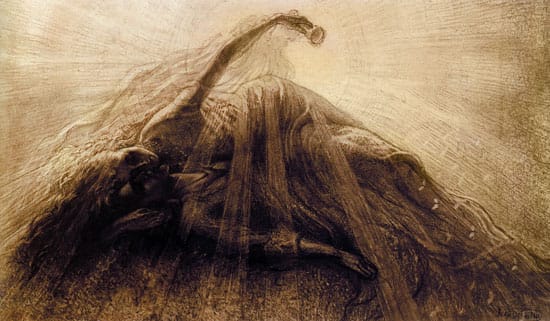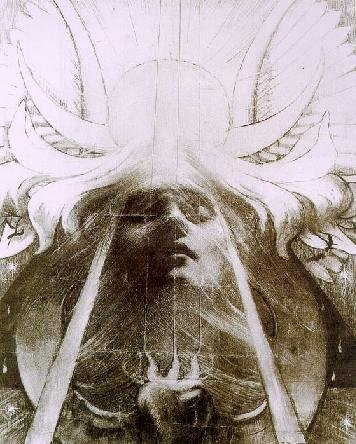Parsifal

Wagner and Orientalism
During the 1850’s, Wagner became very interested in Orientalism – Brahmanism and Buddhism – primarily, it seems, for their notions of samsara and nirvana. They provided the philosophical underpinnings for operas like Parsifal, which he first began writing in 1857, unfinished operas like Die Sieger (The Victors) and, of course, Tristan and Isolde.
Wagner’s Orient seemed to express a human connection spanning the centuries, from ancient India through Luther, Kant and Schopenhauer up through the present, ideas that unfortunately would later be picked up by the "Aryan" Nazis. Other composers used India of course, but only as a backdrop: Bizet’s Les pêcheurs de perles (1863), Massenet’s Le roi de Lahore (1877) and Delibes’ Lakmé (1883). It is said that on the night before he died, Wagner expressed a wish to emigrate to Ceylon (now Sri Lanka).
Below is Parsifal, a hallucinatory charcoal drawing from around 1882 by Belgian Symbolist Jean Delville, an interesting and under-rated painter. Up top is his take on Tristan and Isolde from around 1887.

